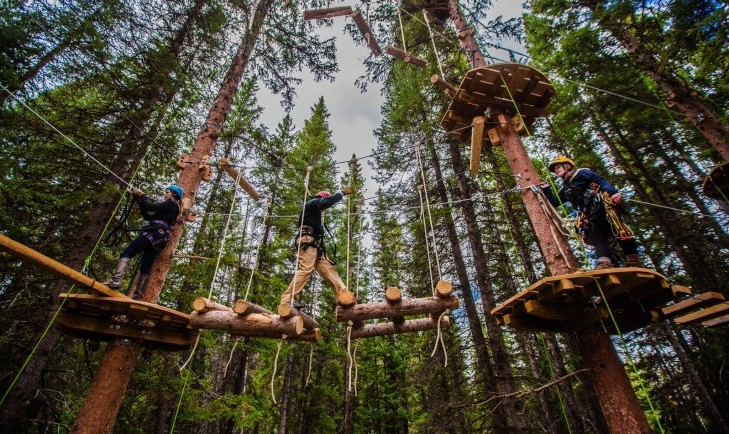
The Western Governors' Association keeps you updated on the news of the West. Here are the top stories for the week starting Feb. 17, 2020. Photo courtesy of Bonsai Design, Inc.
In order for Western states to expand broadband availability to residents in remote areas, they need accurate information about where coverage is lacking.
The Federal Communication Commission (FCC) is responsible for providing this data, however, according to Route Fifty, the agency often overestimates broadband’s reach. This is because the FCC designates any census block where a provider offers internet access to at least one household as “served,” even if the remainder of households do not have coverage.
This methodology has led FCC to estimate that approximately 21 million Americans do not have broadband access, whereas Route Fifty reports the actual number could be almost double that.
Consequently, states have stepped up to fill in the gaps, creating their own mapping initiatives to determine how to best dole out grants and other funds.
“In California, we still have over 400,000 households that do not have infrastructure over almost 1,000 miles of state,” Susan Walters, senior vice president of the California Emerging Technology Fund, told Route Fifty. “It’s really essential to know where there is coverage and where there isn’t.”
WGA has also addressed the issue of inaccurate broadband mapping. In October 2019, Executive Director Jim Ogsbury expressed appreciation to the FCC for its attention to concerns regarding the issue of census block-based reporting. The outreach referenced WGA’s previous comments that the agency's data tended to overstate broadband availability in larger, rural census blocks common in western states.
Additionally, WGA hosted the webinar “Broadband Data & Mapping: Federal Action & Developments,” which discussed the FCC’s ongoing Digital Opportunity Data Collection project; legislative efforts to improve broadband data and mapping; and a National Telecommunications & Information Administration-led pilot project to map broadband coverage using state data.
Studying Outdoor Recreation: Given the potential of outdoor recreation to bolster economic development and community health, Colorado Mesa University will offer a bachelor’s degree dedicated to studying the industry beginning its next fall semester. The new program, according to The Colorado Sun, will teach students concepts vital to success in the outdoor economy, including financial literacy, communications skills, and how to navigate the political landscape of the recreation sector. “The outdoor recreation industry is such a large part of the Colorado GDP,” said Sarah Shrader, director for the new CMU studies program. “[It] can be the lifeline for rural communities trying to reinvent themselves.”
Data Security: Home to tech giants such as Amazon and Microsoft, Washington is looking to establish itself as a pioneer in the field of data security with SB 6281, which Governing Magazine reports was approved by its state senate 46-1 on Feb. 14. Inspired by recent legislation in California, the bill would require that tech companies inform customers if their personal data is being used. It would also stipulate that in certain circumstances, companies must fix inaccurate data or delete personal information at a customer’s request. The new bill would apply to entities within Washington’s borders that control data from at least 100,000 customers, as well as entities that control data from 25,000 or more individuals, but generate at least 50% of their revenue from the sale of personal data.
 From Montana to the Stars: Astronaut Christina Koch, a resident of Livingston, Montana, recently completed a 328-day mission, the longest space flight by a woman astronaut. During her time on the International Space Station (ISS), she also solidified her place in history as part of the first all-female spacewalk, according to Montana Public Radio. Koch’s area of study on the ISS included how microgravity affects plant growth, fire behavior and the structure of certain proteins, all of which will be used by NASA to help send the first woman to the moon in 2024, and in due time, hopefully to Mars as well.
From Montana to the Stars: Astronaut Christina Koch, a resident of Livingston, Montana, recently completed a 328-day mission, the longest space flight by a woman astronaut. During her time on the International Space Station (ISS), she also solidified her place in history as part of the first all-female spacewalk, according to Montana Public Radio. Koch’s area of study on the ISS included how microgravity affects plant growth, fire behavior and the structure of certain proteins, all of which will be used by NASA to help send the first woman to the moon in 2024, and in due time, hopefully to Mars as well.
Expanding Air Travel: Despite the fact it’s nearly 500 miles long from end to end, there are no airports in Idaho that currently offer in-state service. Additionally, since no major north/south highway exists, those looking to traverse the Gem State are forced to catch an out-of-state connection flight, which can be a major hassle, especially for residents who travel often for business. In order to ease this burden, Route Fifty reports that state Sen. Dan Johnson is sponsoring legislation to establish a committee tasked with developing a plan to improve Idaho’s air travel. Comprised of 11 members from the state legislature, Department of Transportation, business community, commercial airline industry, and the public, the committee would enlist the help of outside consultants and present its findings to lawmakers during the next legislative session.
Get the latest news about the West and its governors by following the Western Governors' Association on Twitter, Facebook and LinkedIn.
Check out our new podcast, Out West: Listen on Podbean, Spotify and Apple Podcasts.